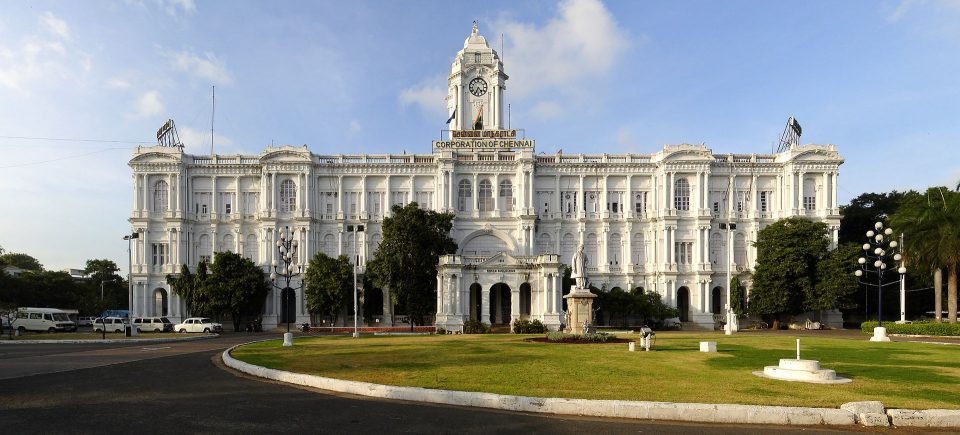
An SC woman as Chennai mayor—another milestone in TN history

With the January 18 decision to reserve Chennai Mayoralty for Scheduled Caste (SC) women, the ruling DMK government in Tamil Nadu may claim to have reached new heights in social justice but historians will point to a long list of predecessors.
In fact, Tamil Nadu’s first SC woman to become a mayor was Rekha Priyardarshini, who became the mayor of Salem Corporation in 2006.
This is, however, the first time that a Scheduled Caste woman will head the Chennai civic body, although there have been women mayors and Scheduled Caste male mayors.
Chennai mayor—through the pages of history
From 1688 to 1886, the head of the corporation was called Mayor. In between, the Mayoralty was suspended due to the French occupation of the city from 1746 to 1753. Then between 1793 and 1856, court judges, in addition to their judicial responsibilities, looked after the administration of the corporation.
For a short time between 1856 and 1860, three officials from the Imperial Civil Service were appointed to administer the corporation. The Mayoralty was revived again in 1860. The nomenclature was changed into President from 1886 to 1933.
A year after the Justice Party assumed power of the Corporation in 1920, it brought out the communal GO, wherein it promised reservation for the Depressed Classes and religious minorities.
One finds mention in Theodore P Wright’s paper, ‘The Muslim League in South India since Independence: A Study in Minority Group Political Strategies’ published in 1966 and political scientist Andrew Wyatt’s book ‘Party System Change in South India: Political Entrepreneurs, Patterns and Processes’ that “the Madras Corporation after 1923 had a system of rotating the post of Mayor between representatives of different caste and religious ‘communities’ which ensures the periodic representatives of Muslims and Christians.”
In 1933, the nomenclature was changed from President to Mayor and this continues till day. Till 1969, the rotation of Mayor was followed.
As such, J. Shivashanmugam (1937-38), a Congressman, was the first Dalit to be elected Mayor of Chennai. He was followed by N. Sivaraj (1945-46) of All India Scheduled Castes Federation and G. Kuchelar (1961-63) and V. Balasundaram (1969-70), both from the DMK.
Interestingly, the first woman Mayor of Chennai was Tara Cherian (Congress), way back in 1957-58. And the second woman was Kamakshi Jayaraman (1971-72) of DMK.
Also read: Before Kerala, TN had the record for the youngest mayor in the country
Though no Dalits were chosen as Mayors after 1969-70, people from different communities under Backward Classes were elected to the post, says Wallajah Vallavan, a scholar on Dravidian politics.
The corporation was suspended for the second time between 1973 to 1996 owing to a scam. In 1996, Current Chief Minister M.K. Stalin had become the Mayor through direct elections.
“But when he contested for the second consecutive time, his Mayoralty was cancelled by the Madras High Court in 2002, citing Justice Party’s rule of choosing mayors on a rotational basis,” says Vallavan.
For the third time, the corporation was suspended from 2016 to date.
Mayor elections
It is also clear now that Stalin’s son Udhayanidhi will not be the next Mayor of Chennai, as was being rumoured.
While the DMK’s dominance in the elections cannot be ruled out, it may not have an easy run, according to some.
Chennai corporation has 200 wards from three districts namely, Chennai, Kanchipuram and Thiruvallur. Although the DMK can sweep in Chennai, in the other two districts, smaller parties like Naam Tamilar Katchi may give a tough fight, says Nandakumar Shiva, general secretary, Thannatchi, an NGO that creates awareness about local body governance.
But wary of the nuances behind a woman holding the post, he also demands that the Chennai mayor should not be a proxy.
“All the parties should choose a strong woman candidate so that the woman who is elected the mayor does not just obey the male, usually her husband, or act according to the demands of dominant caste men,” he said.
DMK spokesperson Constantine Ravindran said the mayoral election will be indirect owing to the pandemic. He said direct elections would mean leaders holding campaigns where large crowds gather, which could cause the pandemic to spread.
“When Mayor is indirectly elected, there is no need for big campaigns,” he said.

